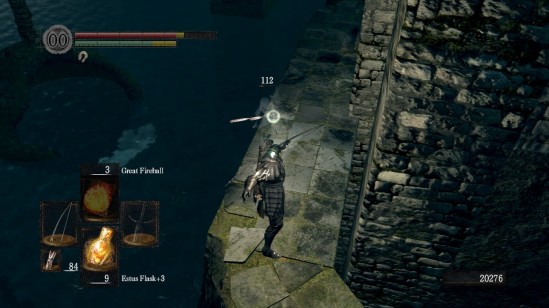With most creative works, whether video games, books, movies, whatever, it’s often the little touches that really make the whole experience. You can have a great plot, excellent gameplay, perfect cinematography, whatever, but if you ignore the tone, atmosphere, visual details, continuity, all those small details, it’s going to drag your whole work down.
From a creation standpoint, it’s really easy to forget that. It’s just habit to try to direct the audience’s focus wherever most of the creator’s efforts are going. After all, I just delivered this big shiny fight scene with such vibrant imagery! Did you see the way Brick Stronggroin just shot that guy’s head into the air where it exploded like an Independence Day firecracker, before he stagedived into the Sea of Tits?! That’s high art! I should be showered with awards! So what if the costumes are not really appropriate for the tone of this work, or the soundtrack at this part is all bloopy reggae jams? Who cares if I had previously established that Brick hated explosions of all sorts owing to the death of his entire home planet in a freak explosion accident?
The thing is, creators experience a work differently than consumers do. Creators, even when going back and reviewing their own creations, tend to look at it piece by piece, breaking it down by its components, and naturally giving more importance to the little bits they spent more effort on. So it’s easy for creators to forget the impact of all the little touches, such as internal consistency, the atmosphere they’ve built, continuity, and all that jazz. All those little pieces combine to form the flavor of the work. For consumers, who, unlike the creators, usually view a work as a whole, more concerned with how well the parts work together than the quality of each individual bit, flavor is generally just as important as every other component. Flavor matters.

A great example of that comes in Fallout: Brotherhood of Steel. There is a game that is just reviled. It’s hard to find anywhere that has anything good to say about it. Fallout fans are absolutely disgusted by its existence, even nonfans have soundly marked it as decently below average, and its sales were incredibly low and likely a large contributing factor to Interplay’s bankruptcy. Perhaps most damning, the owners of the Fallout franchise has determined it completely non-canon, in spite of the fact that it seems to have fewer plot inconsistencies than Fallout Tactics, its fellow side game.
I played Brotherhood of Steel recently. If you take the flavor out of the equation, this is a decidedly average game. The gameplay is uninspired but doesn’t have many major flaws, the visuals are functional, the controls are tight enough, and the plot at least makes sense. Compared to its contemporaries, the game at least hit par. Without the flavor, it doesn’t nearly deserve the heaps of scorn it’s gotten, and it’s probably worth at least a few points more than reviewers have been giving it.
Yet, even so, the game is rightfully remembered as downright foul. And it all comes down to flavor. The flavor in this game is so bad it drastically impacts ones enjoyment of the game.
For the Fallout fans, the flavor inconsistencies are obvious, even as the plot roughly matched up. Fallout is almost defined by its retrofuturist aesthetic. Everything is built around the 1950’s idea of science fiction. And yet, in Brotherhood of Steel, the characters look as if they walked out of the pages of Heavy Metal magazine, the soundtrack was a decidedly modern roll of droning metal, and the game featured product placement from a brand that didn’t even exist until the late 90s. Even ignoring the other games in the Fallout series, the flavor was wildly inconsistent in its own right. Matching the 50’s aesthetic with all the features mentioned above just creates a level of cognitive dissonance that’s absolutely baffling. Moreover, the game swears so much the English language itself starts losing any meaning, the soundtrack is flatout bad, even without the dissonance, and the visual design is flatly uninspired. The game is bad. And it’s bad because of its flavor. It’s bad because this one link in the otherwise average chain is so very, very poor.
It’s easy to go too far with this. I think everyone can remember finding some discussion somewhere where one consumer placed flavor so far above everything else in terms of importance that the slightest inconsistency absolutely shattered their suspension of disbelief and their enjoyment of the piece as a whole. Even so, flavor matters. Flavor is an important component of enjoying a work, and it’s not one that can go ignored.














